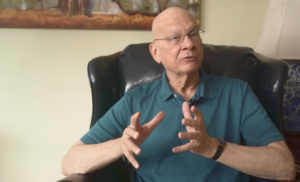It is clear that for some people ‘faith deconstruction’ is just that. They have come to see the historic teachings and doctrines of the church as crafted to make us pawns and suppress our personhood. They are walking away from both the church and the traditional Christian faith altogether. For them, deconstruction—a dismantling—is the end-point of the process.
A short talk from Tim Keller on How the DNA of the Gospel Applies to Cultures All Over the World and how global leaders are using the DNA to share the gospel globally.
The vision cannot be simply for a restoration of churches and Christian institutions to their former states of strength. That is to mistake means for ends. Our vision should be that the astonishing biblical possibilities for the church as the community of the Spirit would be realized in U.S. society in ways it never has before.
In the past two years during COVID, I’ve read a number of helpful books ranging in categories from understanding culture, to Biblical and theological studies. I’d like to preview and recommend a few of them to you.
Christians must recognize that they do have things to do to prepare for renewal, but that ultimately it is God’s wise sovereignty that will determine whether and how the church is renewed. Many see a metaphor for this concept of renewal in Elijah’s confrontation with the priests of Baal on Mount Carmel in 1 Kings 18. The prophet builds an altar, but it is only God whose fire can ignite it. Christians looking for revival, then, are “building the altar,” praying that God will use their efforts to bring a fire of revival with a movement of his Spirit.
Since 2007, evangelicalism has begun its own decline. All indications are that in the coming years an unprecedented number of younger Americans will be leaving churches and institutional religion of all kinds behind. But why?
Virtually everyone agrees that something is radically wrong with the church. Inside there is more polarization and conflict than ever, with all factions agreeing (for different reasons) that the church is in deep trouble.
Tim Keller reviews Chris Bail’s book, Breaking the Social Media Prism: How to Make Our Platforms Less Polarizing (Princeton, 2021)
During these polarizing times where battles for political power or division from cultural struggles are crippling the influence of the Christian church, we need to refocus our attention and commitment to fulfilling the great commission.
During the January 6 storming of the Capitol, rioters exhibited Christian symbols and offered public prayer. Since then the working assumption of the mainstream media is that evangelicalism has now been revealed to be a white American supremacist insurrectionist force, committed to keeping power even if it means overturning democratic processes. The term “Christian nationalist” is now being used to describe white evangelicals. Is that accurate? Are the two terms essentially two ways to describe the same people?
- « Previous
- 1
- 2
- 3
- Next »










